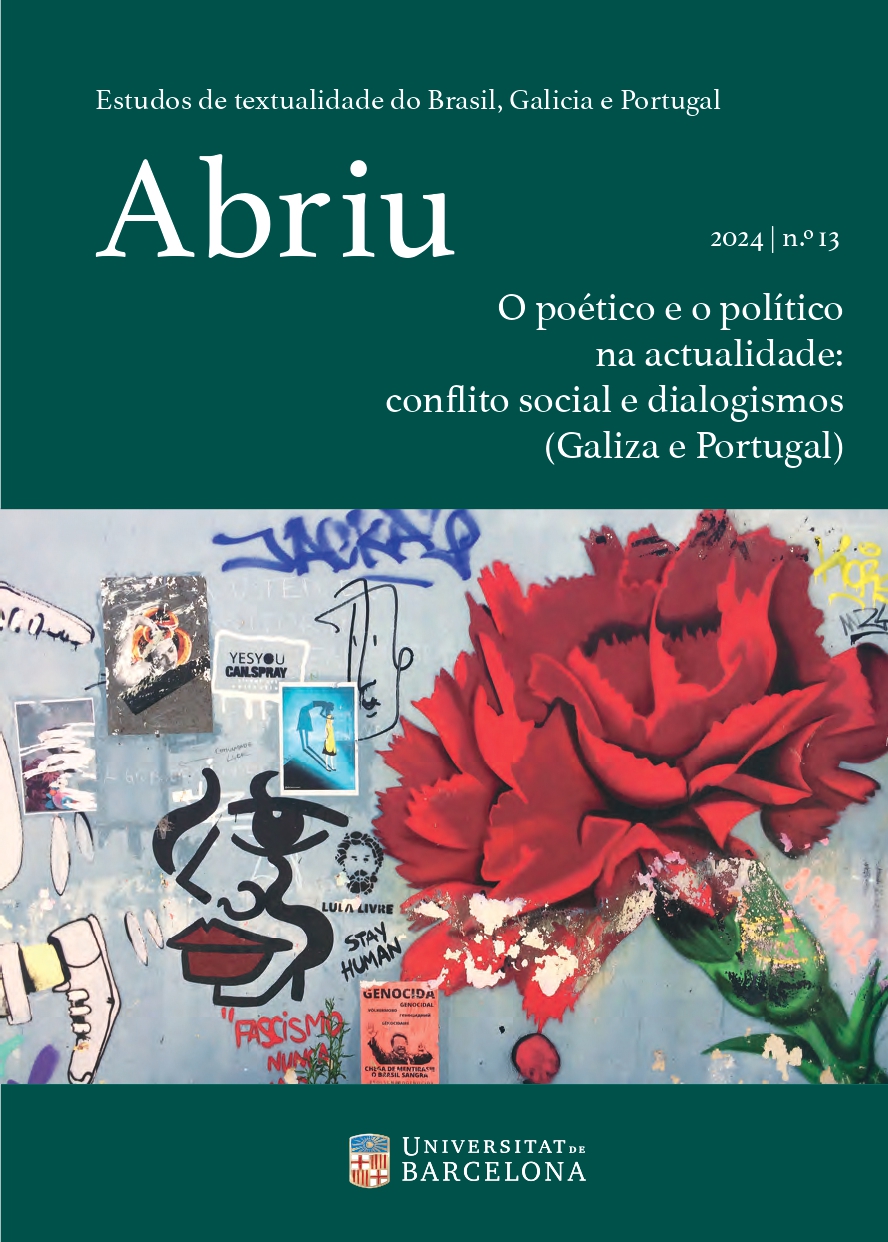“Todos somos necesarios e necesarias”: relations between poetry and social movements through the collective work Sempre mar. Cultura contra a burla negra
DOI:
https://doi.org/10.1344/abriu2024.13.4Keywords:
poetry and politics, poetry and event, Galician poetry, social movements, Nunca MaisAbstract
This papers aims to study the collective book Sempre mar. Cultura contra a burla negra, published in 2003 as part of the protest movement against the sinking of the oil tanker Prestige off the Galician coast and against the political management of that event. After framing the publication in the broader context of relations between poetry and social movements within the scope of the Nunca Mais citizen movement, the theoretical and methodological framework is presented, as well as the state of the question in relation to the previous bibliography on the poetry linked to this historical event. The second part analyses the poetic texts of the book, from different perspectives: general conditions of the product, participating people, thematic repertoires and pragmatic and enunciative characteristics. As main conclusions, the paper establishes that this publication is closely linked to the social movement as an agency of political participation, compared to other publications of the same time in which the agency of the writer, as an intellectual or notable, had a more prominent role. Furthermore, the predominant thematic repertoires are closely linked to the immediate event, although the repertoire variability is quite wide. Globally, the conventional model of social or committed poetry predominates, almost always monological in its pragmatic-enunciative presentation, although alternative models, of a non-lyrical or dialogical type, also find some space.
Downloads
Published
How to Cite
Issue
Section
License
Copyright (c) 2023 Isaac Lourido

This work is licensed under a Creative Commons Attribution-NonCommercial-NoDerivatives 4.0 International License.
The Author retains ownership of the copyright of the article, unless the contrary is stated, and all rights not expressly granted in this agreement, including the non-exclusive right to reproduce, distribute, perform, and display the article in print or electronic form, and grants to Abriu: estudos de textualidade do Brasil, Galicia e Portugal the exclusive rights to first publication of the Article. The work will be available under a Creative Commons Attribution-Noncommercial-No Derivative Works license, by which the article must be credited to the Author and the Journal must be credited as first place of publication.


